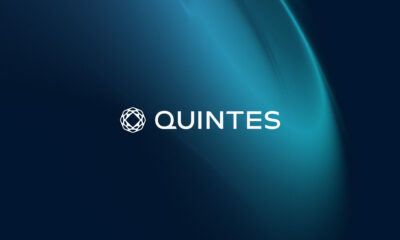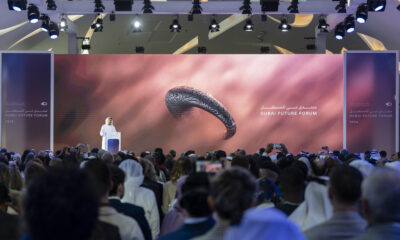News
Binance Is Helping Dubai Become The World’s Crypto Capital
The goal is to create a special crypto zone and provide assistance to crypto-related businesses that are interested in becoming licensed in Dubai.

Binance, the largest cryptocurrency exchange in the world, has recently signed a deal with the Dubai World Trade Centre Authority (DWTCA) to create an ecosystem for cryptocurrencies and other global virtual assets.
“With the MoU, Binance will help advance Dubai’s commitment to establishing a new international Virtual Asset ecosystem that will generate long-term economic growth through digital innovation” said the Binance team in a statement. “Binance believes that Dubai’s new agenda will contribute to the growth of the global economy”.
To achieve this goal, Binance and DWTCA want to create a special crypto zone and provide assistance to crypto exchanges, businesses that offer blockchain, and Distributed Ledger Technology (DLT) services that are interested in becoming licensed in Dubai.
Because Dubai doesn’t want to associate itself with illegal activity, DWTCA will additionally act as a regulator and enforce investor protection standards, as well as anti-money laundering (AML) and Combating the Financing of Terrorism (CFT) laws.
At this point, we don’t know when the crypto zone will become operational. Binance and DWTCA have so far only signed a Memorandum of Understanding (MoU) that outlines their shared vision, but many technical and regulatory details have certainly yet to be worked out.
Also Read: 5 Gaming Cryptos That Will Explode In 2023
The project could be affected by the large regulatory pressure Binance is currently facing from regulators around the world.
For example, the Dutch central bank accused it of not complying with AML and CFT laws, the US Justice Department and Internal Revenue Service is probing the exchange to investigate money laundering and tax offenses, the UK’s Financial Conduct Authority has banned the Binance Group from operating in the UK, and the Securities and Futures Commission (SFC) has issued a warning to consumers, stressing that the company isn’t licensed to conduct regulated activity in Hong Kong.
It’s possible that Binance, which describes itself as a decentralized company with a global presence and whose corporate structure is opaque at best, is interested in establishing the crypto zone in Dubai to create a safe haven for itself.
News
Samsung Smart Glasses Teased For January, Software Reveal Imminent
According to Korean sources, the new wearable will launch alongside the Galaxy S25, with the accompanying software platform unveiled this December.

Samsung appears poised to introduce its highly anticipated smart glasses in January 2025, alongside the launch of the Galaxy S25. According to sources in Korea, the company will first reveal the accompanying software platform later this month.
As per a report from Yonhap News, Samsung’s unveiling strategy for the smart glasses echoes its approach with the Galaxy Ring earlier this year. The January showcase won’t constitute a full product launch but will likely feature teaser visuals at the Galaxy S25 event. A more detailed rollout could follow in subsequent months.
Just in: Samsung is set to unveil a prototype of its augmented reality (AR) glasses, currently in development, during the Galaxy S25 Unpacked event early next year, likely in the form of videos or images.
Additionally, prior to revealing the prototype, Samsung plans to introduce…
— Jukanlosreve (@Jukanlosreve) December 3, 2024
The Galaxy Ring, for example, debuted in January via a short presentation during Samsung’s Unpacked event. The full product unveiling came later at MWC in February, and the final release followed in July. Samsung seems to be adopting a similar phased approach with its smart glasses, which are expected to hit the market in the third quarter of 2025.
A Collaborative Software Effort
Samsung’s partnership with Google has played a key role in developing the smart glasses’ software. This collaboration was first announced in February 2023, with the device set to run on an Android-based platform. In July, the companies reiterated their plans to deliver an extended reality (XR) platform by the end of the year. The software specifics for the XR device are expected to be unveiled before the end of December.
Reports suggest that the smart glasses will resemble Ray-Ban Meta smart glasses in functionality. They won’t include a display but will weigh approximately 50 grams, emphasizing a lightweight, user-friendly design.
Feature Set And Compatibility
The glasses are rumored to integrate Google’s Gemini technology, alongside features like gesture recognition and potential payment capabilities. Samsung aims to create a seamless user experience by integrating the glasses with its broader Galaxy ecosystem, starting with the Galaxy S25, slated for release on January 22.























